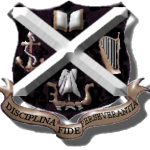Course Overview
Staff
Miss Kellow – Secondary Teacher of Gaelic
Awards
Galic Education Award WINNER 2022
Young Gaelic Ambassador 2023
Gaelic Education Award FINALIST 2023
Course Description
The aim of the BGE courses is to build on work done in primary school through an overview of language skills. These skills are carefully related to tasks which fulfil the Curriculum for Excellence experiences and outcomes. It is important to establish a sound understanding of how the language works at this stage, especially if a pupil intends to study the language further. A gentle introduction to Gaelic literature is also essential and is very conducive to exploring associated cultural and historical themes.
Pupils throughout the BGE are offered a range of extra-curricular activities including sports, drama, school trips and FilmG.
S1:
First year Gàidhlig in Dunoon Grammar School aims to build pupil’s confidence with their use of Gaelic and to continue promoting an immersive environment, which they experienced in primary school. Specific attention is put on improving their spelling, vocabulary and pronunciation skills through a variety of topics that involve assessment in all four skills: reading, writing, listening and talking. To aid in this transition, some topics are aligned with English so pupils can begin to make connections between both languages and support them in developing their skills.
Units:
Individual Talk Assessment
Personal and Creative Writing
Novella Study
Gaelic and the Landscape (introduction to Gaelic Poetry)
Discursive Group Talk Assessment
Listening and Close Reading Tasks
Spelling Progression
S2:
Second year Gàidhlig begins to introduce more challenging skills such as analysis and creation. Pupils are further introduced to the history of Gaelic and the connection they have to the language. Again, some units studied focus on the same skills as the partner English unit so pupils are improving on their close reading and understanding simultaneously. Pupils also begin to work on their grammar and vocabulary to gain knowledge of the structure of the language and to increase challenge in their work.
Units:
Folklore
Advertising (introduction to more challenging literacy techniques)
Creative Writing
Novella/ Short Story Study (introduction to features of short stories)
Poetry Study (introduction to literacy techniques)
Listening and Close Reading Tasks
Group Talk Assessment
Vocabulary and Grammar Tasks
S3:
Third year brings a combination of creative and structured topics with a large focus on media. Pupils receive independence and freedom to choose topics that interest them during the Class Podcast and School Radio Programme Units. Third year Gaelic provides opportunity for inter-disciplinary learning and allows them to experience Gaelic in a real-world setting. Pupils begin to explore the benefits Gaelic has in the World of Work and receive inputs from external partners and gain an understanding of what Gaelic can offer them in Senior Phase and beyond education.
Units:
Class Podcast Unit with Individual Talk Assessment
Gaelic Radio Programme Unit & Interview Skills
Themed Poetry Unit focusing on literacy techniques & analysis
Gaelic in the New World (Gaelic & Canada Unit)
Short Story Study focusing on features of a short story
World of Work (Gaelic) Unit
Grammar and Vocabulary Tasks
BGE Homework:
Throughout the BGE Phase pupils receive fortnightly short close reading homework based on a variety of topics. Pupils receive close reading homework based on their current working grade and provides them with the opportunity to allow them to continuously build on their comprehension and analysis of written Gaelic texts. Close reading homework is to be submitted on a bi-weekly basis to English so as their workload does not get overwhelming.
Progression:
Pupils who complete the S3 CfE Gaelic course may progress to National 4 or National 5 in S4 depending on ability.
Course Description
Pupils normally study National 4 or National 5 in S4, S5 or S6. The courses build on pupils’ experiences at BGE and help them to develop a deeper understanding of Gaelic literature. The N4/N5 courses are closely linked to English in that there is a focus on critical essay and close reading skills. The Gàidhlig course also allows pupils to develop their listening, talking and discursive essays skills and pupils are assessed on all the above elements during the unit assessment and AVU (N4) or the course assessment and assignment (N5.)
There is no external exam for National 4. National 4 candidates receive flexibility in their choice of topic/ unit to study according to their personal interests. Candidates also have an opportunity to work with other Gaelic Speakers to build on their confidence with Gaelic. National 4 bridges the gap between S3 and National 5 and allows pupil to strengthen their skills before sitting a formal external exam.
The final exam for National 5 includes a close reading paper, listening paper, writing paper (literature essay) and talking exam; the talking exam takes place in March, before the main exam diet. The National 5 exam is based largely on understanding of written and oral texts and are assessed on their ability to generally analyse and reflect on a variety of pieces of literature. National 5 also looks at their fluency and accuracy of the Gaelic language in the talking exam.
Pupils throughout the N4/N5 courses are offered a range of extra-curricular activities including sports, drama, school trips and FilmG, the annual Gaelic film competition.
Progression:
Pupils who complete the National 4 Gaelic course may progress to National 5 Gaelic Course in S5 depending on ability.
Pupils who complete the National 5 Gaelic course may progress to Higher in S5 depending on ability.
Homework:
National 5 pupils will receive
Course Description
Pupils normally study Higher in
S5 or S6.
The Higher Gàidhlig Course develops
learners’ ability to listen, read, talk and write in Gaelic, and to understand,
analyse and evaluate texts in the contexts of literature, language, media and
culture. Learners develop the ability to create and produce texts and to apply
knowledge of language, and develop knowledge and understanding of Gaelic
cultural heritage and the cultural heritage of others.
The final exam, similar to
National 5, consists of a close reading paper, listening paper, writing paper
(literature essay) and talking exam; the talking exam takes place in March,
before the main exam diet.
Dissimilar to National 5, Higher
looks at pupil’s ability to analyse rather to understand written texts. Higher
focuses on literacy techniques and the effect this has on the reader on a more
challenging level that National 5. Pupils are also expected to be able to
understand more complex pieces of oral and written texts and engage in an
extended conversation with the class teacher.
Higher pupils are eligible to
take part in BT Deasbad Alba, the Gaelic Schools Debate which takes place in
Stornoway each year and has a very positive impact on pupils’ talking skills
and in also FilmG, the annual Gaelic film competition. Higher pupils are also
offered a range of extra-curricular activities including sports, drama and
school trips.
More information about Higher
Gàidhlig can be found on the SQA subject page.
http://www.sqa.org.uk/sqa/47906.html
Progression:
Pupils who complete the Higher Gaelic Course may progress to Advanced Higher Gàidhlig in S6 depending on ability.
Homework:
At Higher pupils are expected to be engaging with Gaelic resources available to them at home. Pupils are set weekly news summary tasks which enable them to learn new vocabulary in a real-life context which can be applied to all components of the final exam. Pupils also receive bi-weekly grammar homework to ensure they are continuously improving on their written language skills.
Course Description
The Advanced Higher Gàidhlig Course gives learners the opportunity to develop and apply, at an advanced level, the language skills of translation and interpretation through an in-depth study of Gaelic language and literature.
The final exam consists of practical criticism, literature essay, discursive essay, writing on a unseen stimuli and a translation paper as well as a talking exam (which takes place in February before the main exam diet). There is no listening exam at this level.
At Advanced Higher pupils are seen as individual members of the Gaelic community and are expected to be fluent in all aspects of the language. Advanced Higher focuses on their ability to analyse written texts and literature on a deep level and be able to relate them to a real-life situation. Advanced Higher pupils are expected to have a wide range of vocabulary and a natural ability of transferrable skills between Gaelic and English which can be applied to a range of contexts.
Advanced Higher pupils are eligible to take part in BT Deasbad Alba, the Gaelic Schools Debate which takes place in Stornoway each year. The Deabate is extremely successful in allowing pupils to network with peers who speak the language and challenges them to research important topics in the current day which results in a very positive impact on pupils’ oral skills. Pupils Advanced Higher pupils are also offered a range of extra-curricular activities including sports, drama and school trips.
More information about Advanced Higher Gàidhlig can be found on the SQA subject page.
http://www.sqa.org.uk/sqa/48454.html
Homework:
At Advanced Higher pupils are expected to be engaging with Gaelic resources available to them at home. Pupils are set weekly news summary tasks which enable them to learn new vocabulary in a real-life context which can be applied to all components of the final exam. Pupils also receive bi-weekly grammar homework to ensure they are continuously improving on their written language skills. In addition, pupils will receive creative writing and translation exercises throughout the year to prepare them for an essential component of the final exam.
Gaelic
Course Overview “Tha ar sealladh ann an DGS, co-shìnte le feallsanachd Foghlam tro Mheadhan na Gàidhlig, is e sin an t-amas gum faigh gach sgoilear

